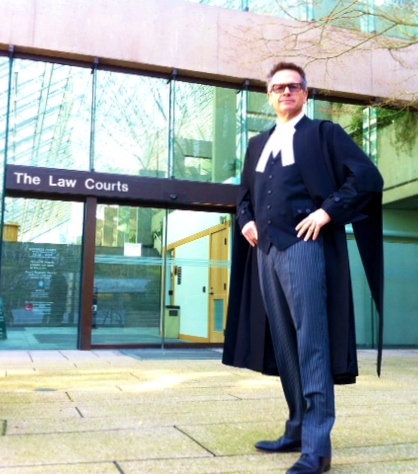What is the test for moving away in a child custody case in BC? As BC Family Law and child custody and access lawyers in Vancouver and Fort St. John, BC one of the most heart wrenching family and BC child custody cases we see occurs when one parent wants to, or is required to, move away with the child from the other parent. Our past articles have discussed the current rules for child relocation also known as child mobility. The BC government has issued a new Family Relations Act Reform White Paper that establishes notice provisions to allow parties to agree to the move or failing that to give each party time to deal with the issue in the courts. The new proposals also contain factors to be considered and onus provisions that differ with the level of child raising involvement of both parents.
The Divorce Act and legislation in Alberta and Saskatchewan allow for orders that establish parenting arrangements to also include provisions requiring notice of a proposed move of a child. Saskatchewan’s Children’s Law Act, 1997,106 and the Divorce Act107 require 30 days notice while Alberta’s Family Law Act108 requires 60 days notice. A notice period of less than 60 days was considered an insufficient period of time for cooperative discussions to take place and 60 days was seen as sufficient time to prepare for a hearing if settlement was not possible.
The second prong of the proposed policy is to include a child-centred definition of relocation that takes into account the specific circumstances of individual families. A child-centred definition of relocation that focuses on the impact of the proposed move on the child’s primary relationships avoids the potential arbitrariness of distinctions drawn on threshold distances, travel times or borders.
The third prong is to legislate specific factors that a judge must and must not consider and introduce the following presumptions:
ï‚· Where the day-to-day care of the child is not equal or substantially equal, the initial burden is on the guardian who wants to move with the child to show that the proposed move is in good faith and that reasonable efforts have been made to find ways to preserve the relationship with the other guardian(s) and with others who are significant to the child. If this initial burden is met, then the onus shifts to the other guardian to prove that the proposed move is not in the child’s best interests.
ï‚· Where the day-to-day care of the child is equal or substantially equal, the burden is on the guardian who wants to move with the child to show that the proposed move is in good faith and is in the child’s best interests.
106 SK Children’s Law Act, 1997, Above Note 33, s. 6(6). 107 CAN Divorce Act, Above Note 2, s. 16(7). 108 AB Family Law Act, Above Note 32, s. 33(2).
71White Paper on Family Relations Act Reform 2010
When assessing good faith, it is proposed that judges be directed to consider: the reasons for the move; the likelihood it would enhance the general quality of life of the child and the guardian proposing the move, including improved financial, emotional or educational opportunities; and any existing restrictions on relocation in an order or agreement. However, judges would be prohibited from considering whether a guardian proposing a move with a child would relocate without the child in any event.
If a judge grants an order in favour of relocation, he or she may also order reasonable security (e.g., posting of a bond) to ensure the relocating guardian complies with orders designed to preserve the relationship between the child and the other guardian(s) or people significant to the child.
The granting of a relocation application will likely necessitate a change in the parenting arrangements for a child, like parenting time schedules. The proposed new Act allows a judge to make those changes needed to facilitate the new reality without the need to establish a change in circumstance. However, the judge will be limited to making changes only insofar as needed to accommodate the move and is directed to preserve the existing parenting arrangements to the greatest extent possible. This responds to the criticism that relocation applications may evolve into an unintended re-examination of the entire parenting arrangement. The concern is that previous agreements or court orders regarding which guardian is best to exercise particular responsibilities should not be re-examined simply because the residence of one of the adults and the child is to be different.
On the flip side, if the judge does not grant the request for a relocation order, the proposed move is not to be considered a material change of circumstance that would alone justify a change to existing parenting arrangements.








